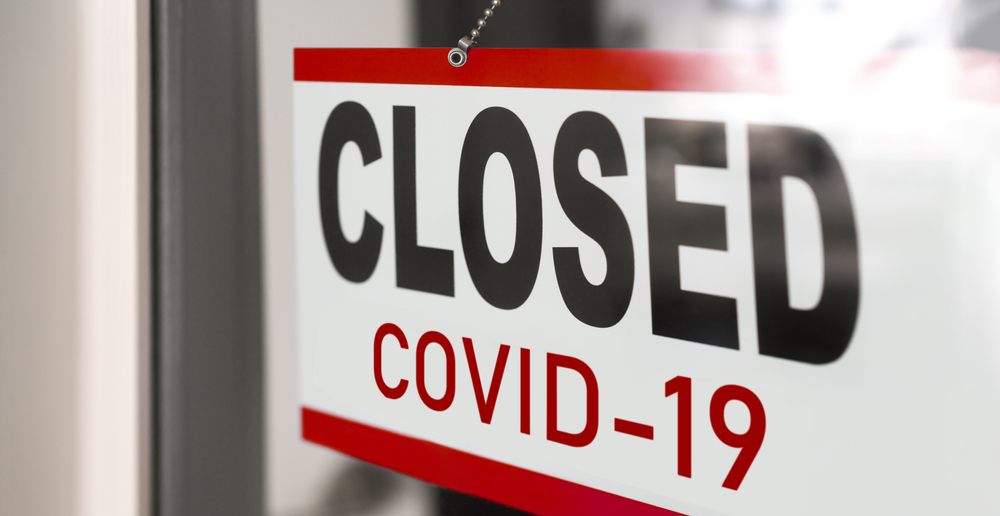With the number of coronavirus cases spiking to record highs in several states and growing fears of a second wave, Treasury Secretary Steven Mnuchin on Thursday shot down shutting down the economy for a second time.
“The bottom line is we cannot afford a second shutdown. We need smarter public policy.”
In fact, reports say the second wave is all but here already as total cases in the U.S. topped 2 million this week. On Wednesday, Texas reported 2,504 new cases, the highest one-day gain since the pandemic began. Florida is now a month into reopening and it reported 8,553 new cases the past week, the biggest one-week gain yet.
California hospitalizations are also now at their highest level since May 13 and have risen nine of the past 10 days.
Mnuchin, however, said shutting down the economy again would only further hurt already reeling industries and businesses while putting even more people out of work. His comments during an appearance on CNBC came as the stock market cratered amid growing concerns on Wall Street, which was an absolute bloodbath Thursday.
“We can’t shut down the economy again. I think we’ve learned that if you shut down the economy, you’re going to create more damage,” Mnuchin said. “And not just economic damage, but there are other areas and we’ve talked about this; medical problems and everything else that get put on hold. I think it was very prudent what the president did (shutting things down), but I think we’ve learned a lot.”
Not only is it a problem to put medical procedures on hold for people who are already ill but, in theory, it could actually could create more medical problems for others.
“Nobel Prize winner Angus Deaton and economist Anne Case have made a strong case that deaths of despair are associated with poor economic conditions. Mnuchin is right to be worrying about that,” Chartered Market Technician Michael Carr said. “Of course, the Democratic response to that is expanded benefits, but the benefits aren’t sustainable. The dollar is already falling, in part from concerns that current fiscal policy is unsustainable. We know government officials are market-focused, so the dollar decline could be driving Mnuchin’s comments.”
Carr, the Editor of One Trade for Banyan Hill Publishing, said a second shutdown would be the nail in the coffin for small businesses across the country.
“If we shut the economy down again, many small businesses wouldn’t survive. Policymakers seem to forget that small businesses are often seasonal. The lawn companies only work a few months a year in some parts of the country and can’t afford a season-long shutdown,” Carr explained. “Retailers tend to enjoy one great quarter and three surviving quarters. Shutdowns make these business owners question their viability.”
Banyan Hill economist and economic historian Ted Bauman said shutting down the economy indeed helped “flatten the curve,” but a second shutdown isn’t feasible politically or economically. As long as people continue social distancing and following protective measures, a second shutdown shouldn’t be necessary.
Best-, Worst-Case Scenarios for Shutting Down the Economy Again
“The best case of a shutdown could be dramatic changes to public services. It could show us that we don’t need as many offices. Maybe we will be able to consider consolidating schools and government buildings to reduce the overall cost of government in the future. It could lead to more efficient government. But as a best case, that’s weak.
“The bottom line is we cannot afford a second shutdown. We need smarter public policy.”
Bauman broke down three potential scenarios that would come from shutting down the economy again — and none of them are positive.
“First, certain types of industries are simply not compatible with containment strategies. Any sort of activity that involves lots of people in enclosed spaces is going to remain severely affected regardless of the overall case numbers. That’s not just a question of official rules, it’s the result of people exercising common sense,” Bauman, Editor of The Bauman Letter, explained. “So everything from airlines to live music is going to be trashed until there is a reliable vaccine.
“Second, industries reopen but are forced to reduce the density of their customers. It may not be sustainable in the long run. Restaurants, for example, simply cannot continue with their current cost structures if they’re going to be limited to 50% of previous capacity. That will effect all sorts of supply chains, including commercial real estate.
“Third, in places where people are reluctant to practice safe distancing and proper hygiene, we’re going to see local outbreaks. They are probably going to get worse in the fall and winter,” he added. “That could lead to localized economic damage, but also to tensions around the relationships between areas with severe local outbreaks and in other parts of the country, as we saw in New England during the New York outbreak.”
Like Mnuchin, Carr and Bauman make strong cases for why the chances of shutting down the economy for a second time are seemingly slim and none.
President Donald Trump, who said in May “we are not closing our country” if a second wave hits, went on the offensive as markets cratered Thursday, again taking aim at the Federal Reserve, this time for its bearishness.
The Federal Reserve is wrong so often. I see the numbers also, and do MUCH better than they do. We will have a very good Third Quarter, a great Fourth Quarter, and one of our best ever years in 2021. We will also soon have a Vaccine & Therapeutics/Cure. That’s my opinion. WATCH!
— Donald J. Trump (@realDonaldTrump) June 11, 2020
Editor’s note: If there is another wave of infections and deaths, should the government shut down the economy again? Why or why not? Share your thoughts below.
